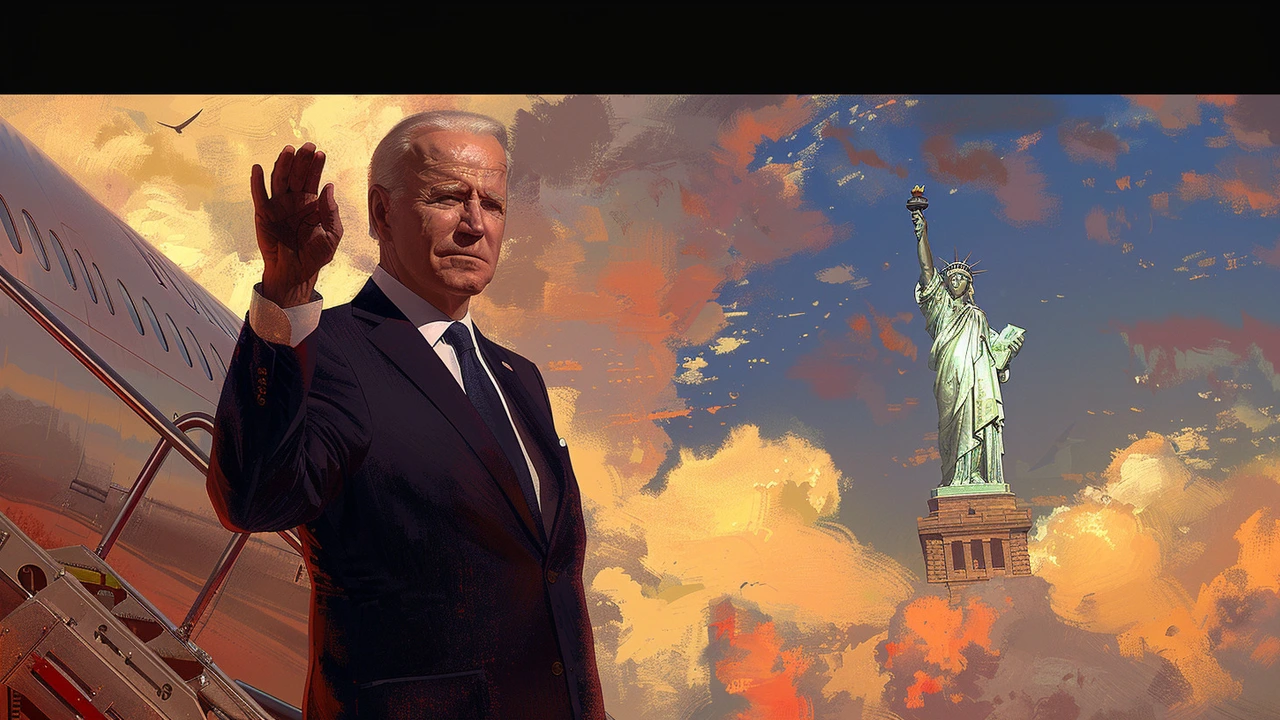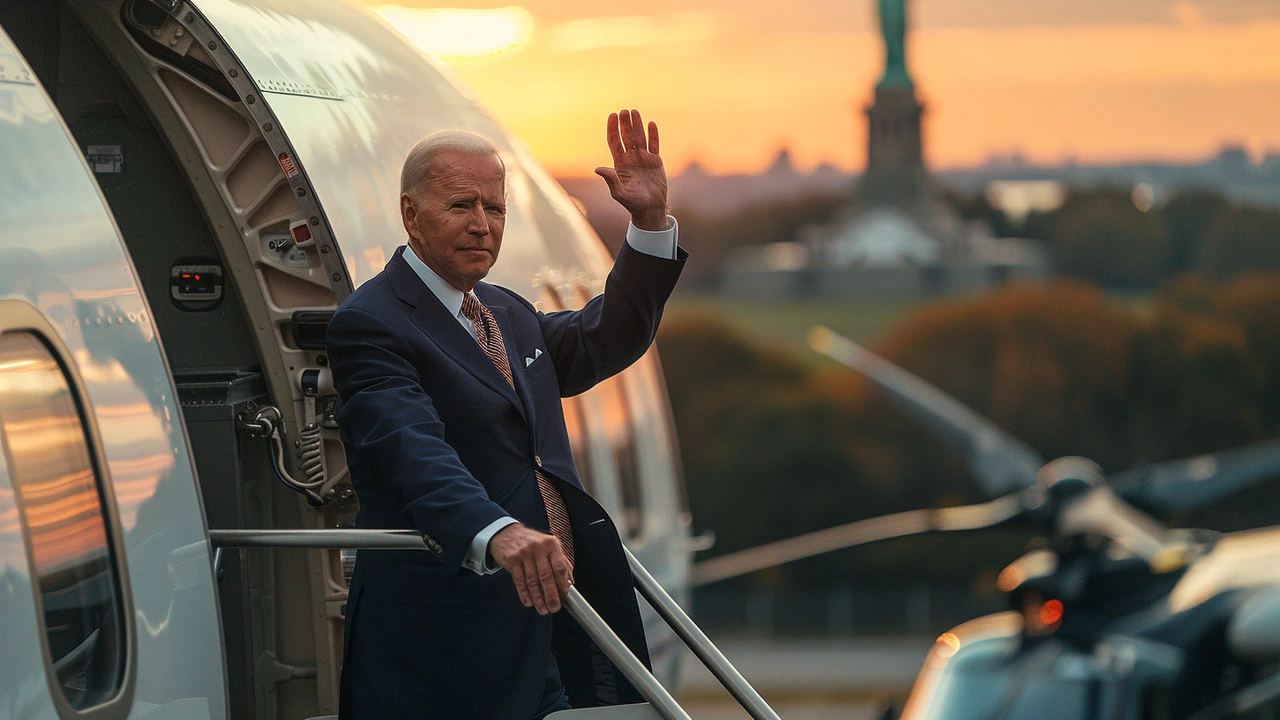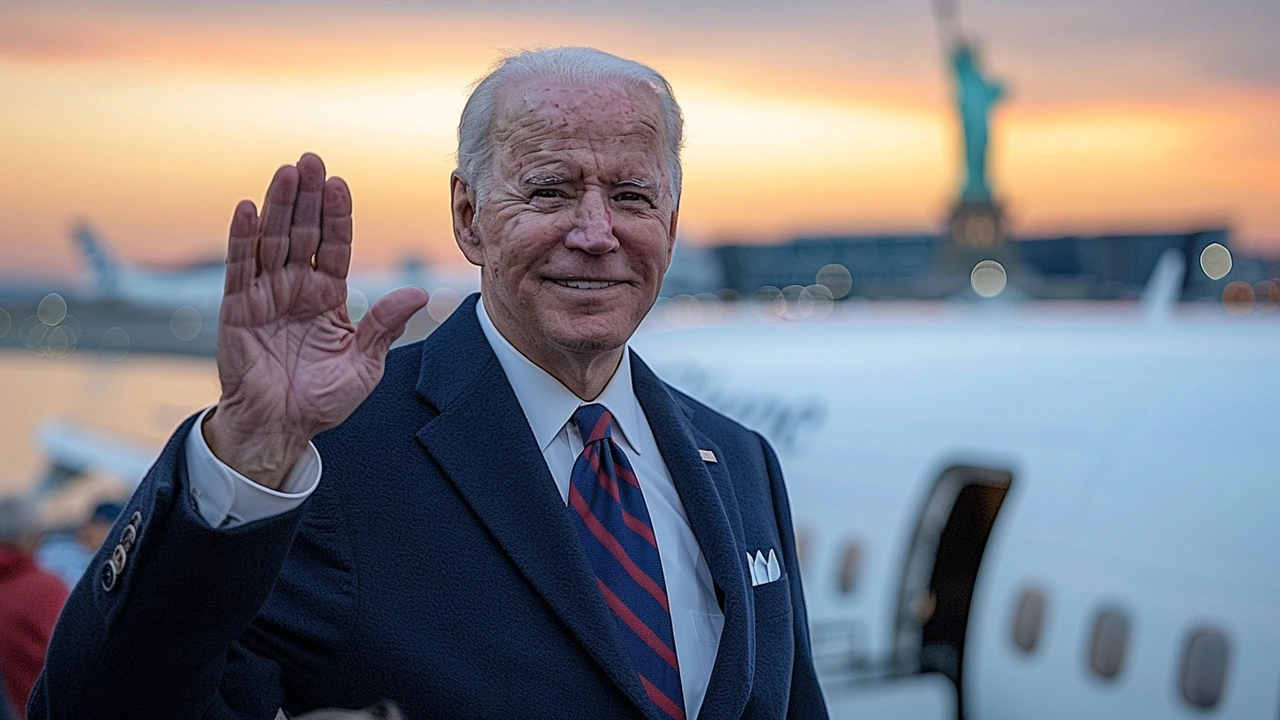Growing Concerns Over Joe Biden's Candidacy
The Democratic Party is grappling with an increasingly critical question: what happens if Joe Biden, their presumptive nominee for the presidential election, decides to step down from the race? This scenario has gained attention following a challenging performance by Biden during a televised debate with former President Donald Trump on June 27th. While Biden has secured enough delegates to claim the party’s nomination, the decision to continue remains firmly in his own hands.
Biden’s debate performance has raised eyebrows and prompted discussions about his viability as a candidate. Concerns about his age, health, and overall capability to engage in the rigors of a presidential campaign have been voiced by both political pundits and voters. This concern is further amplified by the fact that there is no formal mechanism within the Democratic Party to compel Biden to step down even if such a move were deemed necessary. Thus, replacing Biden presents a complex challenge for the party.

The Intricacies of Replacing a Nominee
If Biden were to withdraw from the race, the Democratic Party would find itself in a unique and highly delicate situation. Unlike primary elections where voters have a significant say in determining the party’s nominee, a replacement scenario would place immense power in the hands of the party elite. This would involve high-stakes negotiations and strategic maneuvering behind the scenes, an approach that starkly contrasts with the more transparent primary election process.
The Democratic National Convention, scheduled to take place in Chicago from August 19th to the 22nd, would shift from a structured, almost ceremonial event to a battleground of negotiations and brokered deals. This type of convention, reminiscent of contested conventions from past decades, has the potential to expose deep divisions within the party. Such divisions were last prominently seen in the Republican Party’s 1976 convention, where a fierce battle ensued between Gerald Ford and Ronald Reagan.
Potential Candidates and Their Challenges
Should Biden step down, the field of potential replacement candidates would be under intense scrutiny. Names like Vice President Kamala Harris, Senator Bernie Sanders, and former South Bend Mayor Pete Buttigieg might surface as frontrunners. Each candidate, however, brings a unique set of challenges and attributes to the table.
Kamala Harris, as the current Vice President, would naturally be seen as a successor. Yet, her relatively low approval ratings and mixed public perception could pose a significant hurdle. Bernie Sanders, with his strong progressive base, might appeal to a significant portion of the Democratic electorate but could alienate moderate voters. Pete Buttigieg, who has gained prominence as the Secretary of Transportation, has his own strengths but also faces concerns over his relatively limited political experience.
Other potential contenders like Senator Elizabeth Warren, who has been a progressive stalwart, or Governor Gavin Newsom, with his executive experience in California, could also emerge as viable options. However, reaching a consensus on a candidate who can unite the various factions within the party would be a Herculean task.

The Impact on the Democratic Party
A contested convention and the process of selecting a replacement for Joe Biden could leave lasting scars on the Democratic Party. The risk of deepening internal conflicts and alienating key voter bases is substantial. At a time when unity is paramount to counter the formidable Republican campaign, any sign of discord could be detrimental.
Moreover, the logistical and strategic challenges of rallying around a new candidate on short notice are immense. A new nominee would need to rapidly build a robust campaign infrastructure, secure financial backing, and articulate a compelling vision that resonates with a diverse electorate. This accelerated process could strain resources and focus, making it harder to mount an effective campaign against a well-prepared opponent.
Public and Media Reaction
The public and media reaction to a potential replacement of Biden would also play a critical role in shaping the outcome. A well-managed transition, with clear communication and a unifying message, could mitigate some of the potential fallout. However, any missteps or perceived manipulations could reinforce negative narratives and erode trust in the party’s leadership.
The media’s scrutiny of every move, combined with the rapid spread of information (and misinformation) through social media, would amplify the stakes. The Democratic Party would need to navigate this complex landscape skillfully to maintain credibility and project stability.

Conclusion
As the Democratic Party contemplates the future of Joe Biden’s candidacy, it faces a pivotal moment that could reshape the political landscape. The decision to replace a nominee is fraught with challenges and uncertainties, requiring a delicate balance of strategic thinking, negotiation, and grassroots engagement. Ultimately, the party’s ability to present a united front and a compelling alternative to the electorate will determine its success in the upcoming election.


Madison Neal
June 28, 2024 AT 22:37The strategic calculus of a contested Democratic convention is riddled with institutional inertia and path‑dependent dynamics. When a nominee exits the race, the party apparatus must invoke its Rule 12 mechanisms, which were designed for exceptional contingency scenarios. The delegation composition at the Chicago gathering will undergo a rapid reallocation, forcing precinct chairs to reconvene under compressed timelines. Such a pivot amplifies the relevance of the superdelegate constituency, whose latent voting power can become a kingmaker in a brokered outcome. Moreover, the media narrative will likely shift from policy discourse to procedural theatrics, eroding voter confidence. The intra‑party negotiation matrix will involve a coalition of progressive caucuses, establishment donors, and state party chairs, each leveraging distinct agenda items. A potential successor must therefore navigate a multi‑dimensional legitimacy deficit while projecting a coherent policy platform. This exigency raises questions about the capacity of any candidate to synthesize the Biden legacy with emergent electorate priorities. The campaign finance apparatus will need to re‑mobilize fundraising pipelines that were previously earmarked for the incumbent's war chest. Concurrently, the grassroots volunteer network will confront a morale shock, necessitating targeted outreach to retain engagement. In the realm of public opinion, pollsters will scramble to re‑measure candidate favorability under the new hypothetical landscape. A sudden replacement also risks regulatory compliance pitfalls, especially concerning FEC filing deadlines and coordinated expenditures. The Democratic National Committee will have to issue a rapid endorsement protocol, balancing transparency with internal cohesion. Voter perception of procedural fairness will be a decisive factor in swing states where the margin is razor‑thin. Ultimately, the party's ability to project unity amidst this turbulence could define its electoral viability in the general election.
John Crulz
July 1, 2024 AT 18:15Considering the institutional inertia, a rapid realignment is inevitable. The party’s internal governance structures will likely be strained under such time pressure. It’s a classic case of process versus politicking.
Anita Drake
July 4, 2024 AT 13:53From an inclusive standpoint, any emergent candidate must earn the trust of both the progressive and moderate wings. The party’s cultural fabric thrives on coalition building. It’s crucial to spotlight shared values rather than divisive rhetoric. A unifying narrative can mitigate the risk of alienating key voter blocks.
Eduardo Lopez
July 7, 2024 AT 09:32The drama of a brokered convention would be nothing short of a political theater. Whispers in the backrooms could become front‑page headlines, fueling speculation. Yet, the stakes are real, and the characters are under immense pressure. It’s vital that the party doesn’t let theatrics eclipse substance. The nation watches, and the narrative matters.
Nancy Perez de Lezama
July 10, 2024 AT 05:10The procedural formalities will demand swift compliance with party bylaws. Failure to adhere could undermine legitimacy.
Matt Heitz
July 13, 2024 AT 00:48The national security dossiers underscore the need for a candidate with decisive leadership. Moreover, the economic policy frameworks must be resilient under rapid transition. A dynamic approach could reconcile divergent policy agendas. Conversely, a static stance risks stagnation. Leveraging data‑driven insights will be paramount. Ultimately, the party must balance ideological purity with electability.
Susan Mark
July 15, 2024 AT 20:27From a practical perspective, the campaign infrastructure can be repurposed with some strategic tweaks. Volunteers will respond well to clear, actionable guidance. A focus on grassroots mobilization can compensate for the shortened timeline.
Jason Jennings
July 18, 2024 AT 16:05The lazy criticism of the party’s internal wrangling is understandable but overlooks the deeper ideological currents. Pretentious elitism only alienates the base.
Diego Vargas
July 21, 2024 AT 11:43i think the whole thing is like a big mess but we cant just ignore the facts. the party needs a plan thats both smart and real. its not just about who winks at the donors. we gotta look at the voters mood honestly.
Alex Lee
July 24, 2024 AT 07:22The party needs clear leadership.
Vida Yamini
July 27, 2024 AT 03:00Honestly this is a perfect moment to remind everyone that political processes are not just about power plays but about people and their hopes for the future it’s easy to get lost in the jargon and the endless strategy sessions but at the end of the day the voters want honesty integrity and a clear vision for what’s next the conversation should shift from who can outmaneuver whom to how we can collectively move forward together inclusive dialogue and mutual respect can bridge the gaps that seem insurmountable when we put aside our differences we can focus on shared goals that matter to the everyday citizen and that’s the kind of messaging that resonates beyond the party walls and ultimately decides elections
James Lawyer
July 29, 2024 AT 22:37In formal terms, the party’s contingency planning must align with the FEC regulations governing candidate substitution. The legal framework provides a narrow window for filing, necessitating prompt action. A coordinated effort among state parties will ensure procedural compliance and maintain electoral integrity.